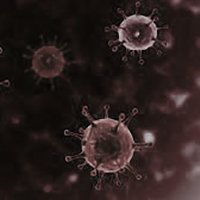Common anti-oxidant vitamin C as an anti-infective agent with remedial role on SARS-CoV-2 infection. An update

All claims expressed in this article are solely those of the authors and do not necessarily represent those of their affiliated organizations, or those of the publisher, the editors and the reviewers. Any product that may be evaluated in this article or claim that may be made by its manufacturer is not guaranteed or endorsed by the publisher.
Authors
Coronavirus disease 2019 (COVID-19) has led to a worldwide multifaceted crisis. The medical world agonizes to contend with the problem, but a string of tested medications has been proven unavailing. Vitamin C is well described as a salutary antioxidant and some trials conclude that it may be a potential antiviral drug. In high doses, vitamin C can alternate crucial steps in the pathogenesis of sepsis and acute respiratory distress syndrome. This dynamic was the driving force behind trials around the world that tried immunonutrition as a weapon against clinical entities. We summarize the mechanisms of action of vitamin C and its role against infections and the current literature referring to the potential role of vitamin C in SARS-CoV-2 infection, also as a contingent treatment agent.
How to Cite

This work is licensed under a Creative Commons Attribution-NonCommercial 4.0 International License.






